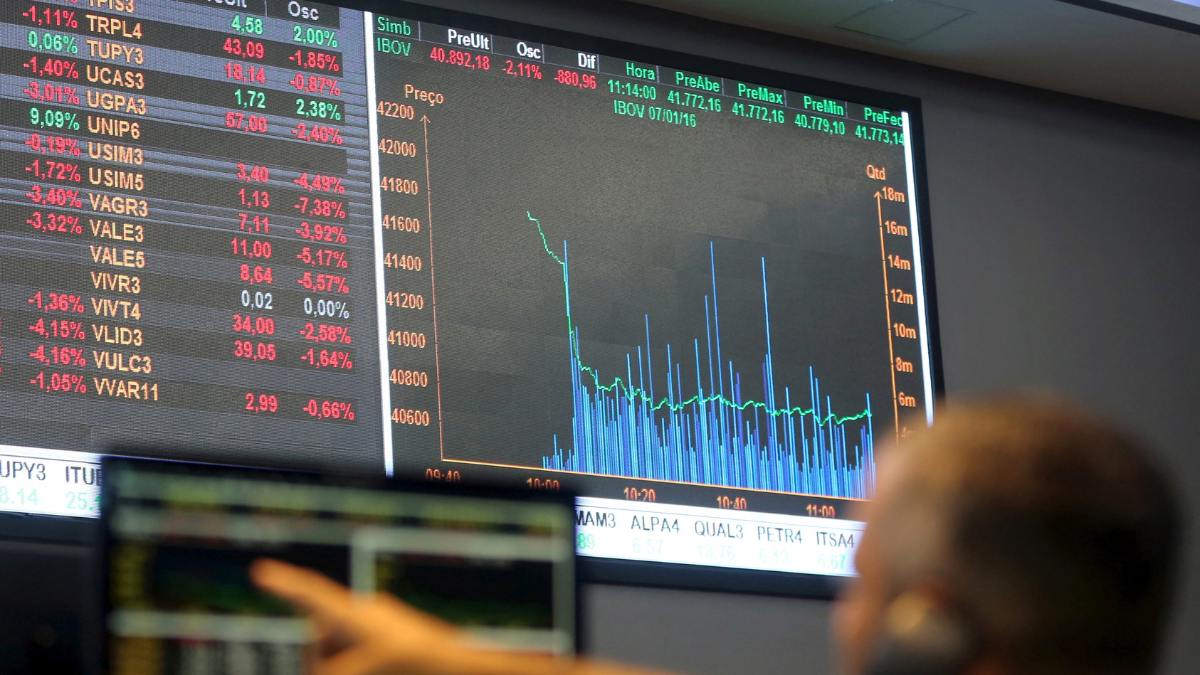The benchmark Indian equity indices opened in negative territory amidst soured global cues triggered by the recent attack by Hamas on Israel and the latter’s subsequent retaliation. After settling into positive territory on Friday, the benchmark indices opened lower on Monday. The NSE Nifty 50 opened at 19,539.45, up 0.58%, and currently trades at 19,556.90, down 0.49%, whereas the BSE Sensex opened at 65,560.0, down 435 points, and currently trades at 65,666.93, down 328.7 points.
Smallcap and Midcap stocks have faced the highest corrections among the broader indices. Among the sectoral indices, PSU Bank and Media led the losses with 2.16% and 1.87%, respectively, while Metal, Financial Services, and Pharma stocks also posted declines. IT stocks stood apart and added gains of 0.42% to 32,476.15 during intra-day trade on Monday. Adani Ports, BPCL, Adani Enterprises, Bajaj Finserv, and Titan are the top losers on the NSE.
Here’s how experts see repercussions of ongoing conflict on market landscape.
Palka Arora Chopra, Director – Master Capital Services said that, “Palestinian Islamist group Hamas launched the largest military assault on Israel in decades. Increasing geopolitical risk in the Middle East could increase oil prices and higher volatility can be expected. This can have a lasting and meaningful impact on oil markets as there can be a sustained reduction in oil supply. Surging crude oil could impact domestic inflation and can see interest rates at an elevated level for a prolonged period.”
“FIIs are continuously selling due to higher bond yields and high crude oil prices could add more issues. One should keep an eye on the nature of the war, as its longevity could have a strong impact. In the stock market, sectors like Paint and chemicals need to be closely watched as it will impact their margins in the short to medium term,” Palka Arora added further.
“The recent escalation in the Israel-Palestine conflict has injected uncertainty into global markets, leading to a 5% surge in crude oil prices and a hardening of US Treasury yields. Investor flight to safe assets like gold is also underway. The duration and severity of this conflict will dictate its impact on global economic sentiment, including potential repercussions for Indian markets,” Sharad Chandra Shukla, Director at Mehta Equities.
“Israel – Hamas war will add to global geopolitical uncertainty in Middle East and higher price of crude. Prolonged escalation and increase in geographical spread can have negative impact on equity markets in the near term,” said Amnish Aggarwal – Head of Research, Prabhudas Lilladher.
Whereas Manoranjan Sharma, Chief Economist, Infomerics Ratings said, “The surprise Israel-Palestine war would have wide-ranging ramifications and repercussions across geographies, economies and sectors. There will be volatility in the bond and equity market temporarily. Bond yields will harden, cost of credit may go up for companies, crude price will rise if it spills over to middle East. Gold may become a safe haven. Bond yields will go down as interest rates will rise further, oil prices will go further up. This would impact the Indian capital market, the banking sector, the trade deficit, the current account deficit and also to a limited extent, the fiscal deficit.”
“All this depends on the severity of the Israeli counterattack and the duration- does it end swiftly with a crippling blow to Hamas or it drags into a long-protracted war, e.g., Russia -Ukraine war? My sense is for a swift, bloody war and Hamas to get a debilitating blow. But this is an evolving situation and would further heighten geo-political tensions, which were already exacerbated by the Russia-Ukraine war and the posturing or worse in the Taiwan region,” Manoranjan Sharma added.
Commenting on the conflict and its repercussions Santosh Meena, Head of Research, Swastika Investmart said, “The ongoing conflict in Israel is an unforeseen event impacting the market, and its effects may take some time to be fully absorbed. Monitoring the situation closely, especially regarding the potential involvement of other actors like Iran, is essential. The possibility of a third front involving Iran is a significant concern as it could trigger a sharp increase in crude oil prices. ”
“From a technical standpoint, the 19,300–19,250 range is a critical demand zone. Until the market stabilizes within this range, it’s likely to remain in a sideways pattern, facing a notable obstacle at 19,800. A breach below 19,250 could lead to a healthy correction, potentially reaching the 18,800 level. For short-term traders, it’s advisable to exercise caution and not rush into trades. On the other hand, a substantial correction could present an excellent buying opportunity for long-term investors,” Santosh Meena added further.

